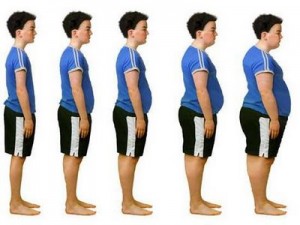I tuned in to Jamie Oliver’s Food Revolution the other night. I’m not a lover of reality shows, but, in this case, my curiosity got the best of me. For those of you who haven’t watched TV in the past few months, Food Revolution is a show that documents the antics of celebrity chef, Jamie Oliver, as he rides into the “fattest city in the US” and turns the population (especially the school kids) into healthy eaters. All this in slick, sensationalistic, sixty-minute segments!
As we all know, childhood obesity is taking a terrible toll on our kids. There’s no doubt that a crisis of this magnitude requires us to enact policy changes and programs aimed at addressing the problem. But do programs like Oliver’s Food Revolution really work? How do educators, concerned citizens, and policy makers know which programs will give us the best return on our investment?
John Cawley, a professor in the College of Human Ecology’s Policy Analysis and Management department, has recently published a study that addresses this question. Cawley, an economist, examined recent studies of several programs to reduce obesity, and found that CATCH (Coordinated Approach to Child Health), a multistate program that teaches elementary schoolchildren how to eat well and exercise regularly, is the most cost-effective. On the other hand, the study found that many other popular programs are not as effective and were much more costly than CATCH. Cawley’s study can be found here.
Cawley, who has served on the Institute of Medicine’s committee to prevent childhood obesity, says “It’s a bit of a Wild West, anything-goes environment when it comes to creating anti-obesity programs and policies. With limited resources, it would be counterproductive to rush into programs that are not cost-effective and won’t provide the greatest return on investment.
So, what does any of this have to do with Oliver’s Food Revolution? It suggests that policy makers need to look beyond the glitz when they consider which programs to invest in. It’s important to investigate which programs are “evidence-based” and which are merely entertainment. Food Revolution has not been rigorously evaluated. A preliminary study conducted by the West Virginia University Health Research Center to investigate the program suggests that the program had few positive impacts and a negative impact on meal participation and milk consumption.
In the end, as with most persistent societal challenges, the obesity epidemic is a complex problem best addressed by concerned citizens and policy makers who are committed to finding the best evidence-based solutions. And, unfortunately, it’ll probably take us longer than the sixty-minute segments of a reality TV show to fix the problem.



